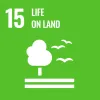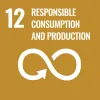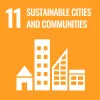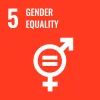Overview
I volontari di questo progetto partecipano a un progetto di conservazione guidato dalla comunità che mira a preservare l'habitat di nidificazione delle tartarughe marine sulla spiaggia della Penisola di Osa in Costa Rica. Proteggono 8 km di spiaggia dove registrano oltre 7000 nidi a stagione delle specie Olive Ridley e Pacific Green. La Penisola di Osa si trova all'estremità meridionale del Costa Rica, nel Pacifico, in una delle aree più ricche di biodiversità del pianeta. Ospita il Parco Nazionale del Corcovado, che comprende un'ampia varietà di ecosistemi distinti, tra cui foreste pluviali primarie secolari, foreste di palme, mangrovie e habitat costieri e marini. Questa varietà di ecosistemi porta con sé un gran numero di specie autoctone, endemiche e migratorie. La Penisola di Osa da sola ospita circa il 2,5% della biodiversità globale, con circa 250.000 specie vegetali e animali, oltre 300 delle quali non si trovano in nessun'altra parte del pianeta.
Questo progetto lavora attivamente su 5 Obiettivi di Sviluppo Sostenibile delle Nazioni Unite per contribuire a sostenere il mantenimento di un pianeta sano.
Conservazione e ricerca sulle popolazioni nidificanti di tartarughe marine
Aumentare i tassi di successo della schiusa proteggendo i nidi e, in casi estremi, trasferendoli negli incubatoi.
Aumentare le probabilità che i piccoli raggiungano l'età adulta.
Ridurre i tassi di predazione e bracconaggio sulle nostre spiagge effettuando pattugliamenti regolari.
Aiutare le tartarughe che hanno subito lesioni a causa di catture accidentali, inquinamento e danni causati da barche, altri animali o cause naturali.
Regolari pulizie delle spiagge, durante le quali riutilizziamo i rifiuti che vengono portati a riva e ricicliamo il resto.
Raccolta di dati e conduzione di ricerche per influenzare i decisori politici e colmare le lacune informative negli studi di ricerca scientifica.
Coinvolgimento della comunità nella conservazione
Offrire posti di lavoro migliori e un reddito fisso alle persone della comunità, in particolare ai cercatori d'oro e agli ex bracconieri.
Informare la popolazione locale sull'importanza della conservazione all'interno della propria comunità, promuovere pratiche sicure di ecoturismo ed essere più consapevoli del consumo di plastica e dell'inquinamento ambientale.
Fornire lezioni di inglese per migliorare la vita della gente del posto e aiutare i membri della comunità ad assumere ruoli di primo piano nel nostro progetto di tour, formazione e gestione dei volontari all'estero.
Offrire altri servizi o tour, oltre alla conservazione delle tartarughe, in modo che anche altre organizzazioni comunitarie possano ricavare un reddito sostanziale dall'ecoturismo.
Istruzione e attivismo
Promuovere opportunità economiche sostenibili e rispettose dell'ambiente
Sfruttare i social media per promuovere la responsabilità e la consapevolezza ambientale
Contribuire al progresso delle politiche locali e nazionali per promuovere l'impegno della penisola di Osa verso la sostenibilità ecologica
Sviluppo e applicazione di metodi innovativi per la ricerca, la conservazione e la protezione ambientale
Un programma perfetto per te, che ti darà l'opportunità di acquisire esperienza lavorativa diretta e di contribuire alla tutela della biodiversità della Costa Rica.
Vuoi scoprire altri modi per fare la differenza? Scopri i nostri programmi di volontariato in Sud America .
Orario di lavoro volontario
Orario di lavoro volontario
Gli orari settimanali devono essere flessibili a causa della natura del nostro lavoro ambientale e comunitario e pertanto, in caso di modifiche, il nostro staff vi informerà il prima possibile. Per quanto riguarda il carico di lavoro, questo varierà a seconda del numero di persone presenti al campo; potremmo aver bisogno che ci diate una mano un po' più del solito, ma faremo in modo che abbiate il tempo di riposare. Faremo in modo che tutti abbiano almeno un giorno libero completo dalle attività obbligatorie, tuttavia questo sarà stabilito dal responsabile del campo e si adatterà alle attività della settimana. Se desiderate richiedere un giorno libero specifico, vi preghiamo di farlo prima dell'inizio della settimana in modo che possa essere preso in considerazione nel programma.
Di seguito è riportato un piano suggerito, che potrebbe variare a seconda delle circostanze:
Giorno 1, domenica: arrivo a Puerto Jimenez
Arrivo a Puerto Jimenez e trasferimento in un ostello prenotato a Puerto Jimenez. Il pacchetto di arrivo con prelievo e soggiorno a San José è disponibile a un costo aggiuntivo. Non è previsto il trasferimento dall'aeroporto all'ostello di Puerto Jimenez. I volontari raggiungeranno autonomamente l'alloggio situato nelle immediate vicinanze dell'aeroporto.
Giorno 2, lunedì: trasferimento al campo di volontariato
Lunedì pomeriggio trasferimento al Camp Mariposa Azul. Incontro con il coordinatore al campo.
Giorni 3-8, da martedì a domenica: lavoro sul cantiere
Giorno 9, lunedì: Ritorno a San Jose o continuazione del programma
I partecipanti che seguiranno il programma per una settimana saranno riaccompagnati a Puerto Jimenez questa mattina. Gli altri proseguiranno il programma ulteriormente.
Cose da considerare
Date del progetto: il progetto non è disponibile a maggio e giugno.
Pre-soggiorno a San Jose – Possiamo aiutarti a organizzare il ritiro e il soggiorno a San Jose prima o dopo il tuo programma nella penisola di Osa.
I progetti iniziano e terminano di lunedì; i volontari devono essere a Puerto Jimenez la sera prima (incluso nel progetto).
Il soggiorno minimo è di una settimana, ma è più comodo rimanere più a lungo
Wi-Fi scadente
Il lavoro può essere fisicamente impegnativo
Ruolo e responsabilità del volontario
Ruolo e responsabilità del volontario
Ecco un'istantanea delle entusiasmanti attività a cui prenderai parte:
Pattuglie delle tartarughe: partecipa alle pattuglie giornaliere: trascorri dalle 3 alle 5 ore nelle pattuglie mattutine o dalle 4 alle 7 ore nelle pattuglie notturne. Proteggi i nuovi nidi, registra i dati sulle femmine nidificanti, etichetta le pinne, scava i nidi appena nati e aiuta a liberare i piccoli.
Attività diurne: partecipare alle pulizie delle spiagge per mantenere incontaminati i siti di nidificazione, smistare e gestire la plastica raccolta sulle spiagge durante la classificazione della plastica, insegnare l'inglese alla gente del posto attraverso lezioni di inglese, tenere presentazioni scolastiche sulla conservazione delle tartarughe marine e aiutare nella piantumazione e manutenzione degli alberi per sostenere la biodiversità locale.
Impegno e divertimento: immergiti nelle attività del progetto e goditi anche del tempo libero per rilassarti ed esplorare la splendida penisola di Osa.
Coinvolgimento della comunità: entrare in contatto con le comunità locali per promuovere pratiche sostenibili ed educazione ambientale, con un impatto diretto sulla protezione e la conservazione delle tartarughe marine.
Project Requirement
Project Requirement
I volontari devono avere almeno 18 anni al momento di aderire al progetto. È necessario avere una mente aperta e un atteggiamento flessibile per lavorare in un ambiente nuovo e diverso. Il volontario dovrebbe portare energia ed entusiasmo per fare la differenza. I partecipanti devono essere in forma e in salute al momento dell'adesione al programma e devono essere pronti a lavorare all'aperto e a sporcarsi le mani. I partecipanti al programma dovrebbero avere un vivo interesse e amore per il lavoro di conservazione ambientale. I partecipanti non devono avere condanne penali e devono fornire un rapporto pulito di controllo dei precedenti penali. I partecipanti devono essere preparati per lavori fisicamente impegnativi poiché devono camminare per diverse ore sulla spiaggia con qualsiasi tempo alla ricerca di tartarughe adulte che nidificano. I volontari devono essere responsabili, flessibili, pazienti e proattivi. Dovresti avere entusiasmo per essere coinvolto e apprendere, nonché la capacità di lavorare sodo senza una supervisione costante. Questa è una grande opportunità per apprendere nuove competenze, incontrare nuove persone e creare un vero differenza per le tartarughe e i membri della comunità locale.
Schedule a Google Meet with a Program Advisor
Interested in our programs? We're here to provide expert guidance
- Get Detailed Info
- 20 min One -on-One meeting
- Get expert advise
- Application Guidance
Photo Gallery









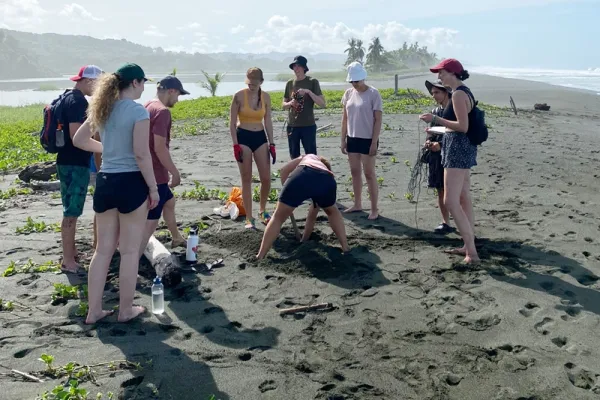
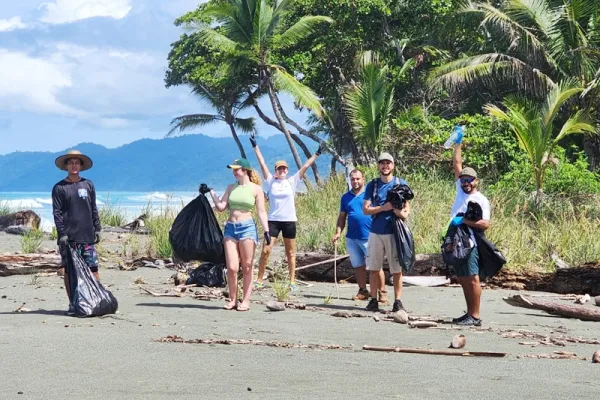
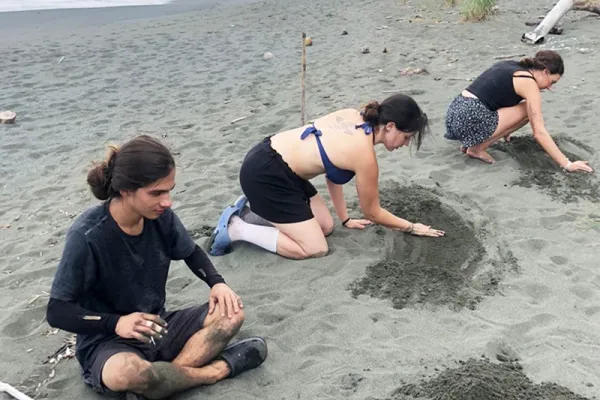
Living
Living
Trasferimento aeroportuale
I partecipanti devono arrivare a Puerto Jimenez di domenica. È possibile prenotare il servizio di prelievo dall'aeroporto e il pre-pernottamento a San José a un costo aggiuntivo.
Non è previsto il servizio di trasferimento dall'aeroporto all'ostello di Puerto Jimenez. I volontari si recheranno autonomamente all'alloggio.
Alloggio
Il campo rustico è composto da due bungalow misti in stile dormitorio, ognuno dei quali può ospitare 8-10 volontari, oltre a cabine per il personale, una cucina comune, un'area relax e un giardino con alberi da frutto, una piccola serra e un pollaio. Il progetto è dotato di energia solare e Wi-Fi di base, oltre a servizi igienici occidentali e acqua potabile.
Ci sono tantissime aree da esplorare alla ricerca della fauna selvatica! Condividiamo il nostro spazio con alcuni fantastici animali domestici. Il campo è dotato di quanto segue:
- Acqua potabile pulita
- Letti singoli
- Alloggio condiviso
- Blocco doccia e servizi igienici
- Wifi
- Energia solare di base
- Stazione di lavaggio a mano
- Parcheggio / area campeggio
- Area comune
- Cucina completamente attrezzata
Un coordinatore dei volontari di lingua inglese risiede nel campo e definirà ogni settimana un programma chiaro con attività lavorative e divertenti.
Orientamento
Tutti i volontari ricevono un orientamento prima di iniziare il programma dal coordinatore del progetto. L'orientamento è condotto dal personale locale e copre argomenti quali ruoli e responsabilità dei volontari, regole e aspettative, sicurezza e introduzione al progetto e al tirocinio.
Pasti
Nel campeggio tutti i pasti sono inclusi e vengono forniti principalmente pasti vegetariani.
Durante il tuo tempo libero
Ci sono molte attività diverse nella penisola di Osa. Ecco alcune delle attività:
- Parco nazionale del Corcovado
- Surf a Matapalo
- Passeggiate a cavallo - Tour del cioccolato
- Tour delle balene e dei delfini
- Escursione alla cascata
- Visita guidata alla miniera d'oro
- E poi tante attività gratuite: passeggiate notturne, passeggiate nella giungla, pulizie della spiaggia, serate di giochi e film, serate pizza, ecc.
- Nella spiaggia vicina al campeggio NON è consentito nuotare, tuttavia è possibile svolgere attività come giocare sulla spiaggia, andare alla ricerca di animali o ammirare il panorama mozzafiato.
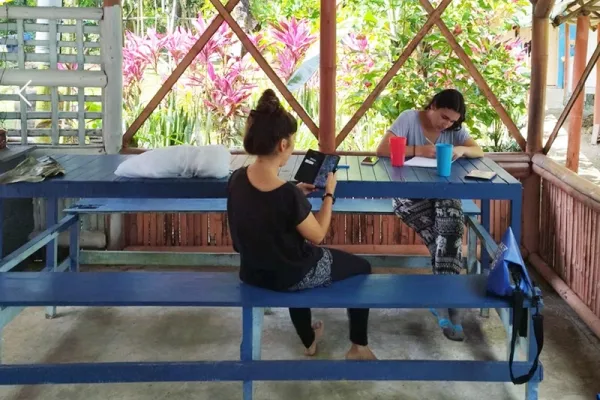

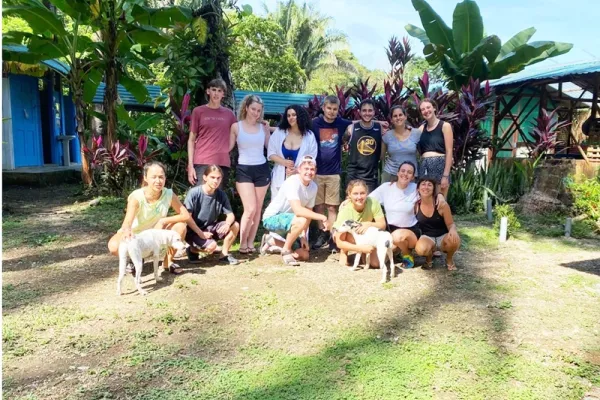
Dates
Dates
January
04
11
18
25
February
01
08
15
22
March
01
08
15
July
05
12
19
26
August
02
09
16
23
30
September
06
13
20
27
October
04
11
18
25
November
01
08
15
22
29
December
06
13
20
27
January
03
10
17
24
February
07
14
21
28
March
07
14
July
04
11
18
25
August
01
08
15
22
29
September
05
12
19
26
October
03
10
17
24
31
November
07
14
21
28
December
05
12
19
26
Costs
| Duration |
Program Fee
|
Choose your currency
|
|---|---|---|
| 1 Week | $735 | |
| 2 Weeks | $1047 | |
| 3 Weeks | $1251 | |
| 4 Weeks | $1551 | |
| 5 Weeks | $1851 | |
| 6 Weeks | $2151 | |
| 7 Weeks | $2451 | |
| 8 Weeks | $2751 |
Please Note: A registration fee of is charged in addition to the program fee. This fee is valid for one year, during which participants may enroll in multiple programs. A 5% international banking fee applies to credit card payments of program fee made in USD or AUD.
Per cosa stai pagando?
- Informazioni e supporto prima della partenza
- Manuale prima della partenza
- Incontro online (consapevolezza) prima della partenza
- Arrivo la domenica a Puerto Jimenez
- 1 pernottamento a Puerto Jimenez in ostello
- Lunedì mattina ore 6 con colectivo/bus per il campeggio
- Incontro e saluto con il coordinatore dei volontari inglesi al campo
- Inclusi i pasti (per lo più vegetariani)
- Seguire gli incontri online (consapevolezza).
- Attività gratuite; passeggiate notturne, passeggiate nella giungla, serate di giochi e film, serate pizza, ecc.
- Wifi scadente
- Biglietto di andata e ritorno per l'autobus per Puerto Jimenez lunedì
Cosa NON è incluso?
- Biglietto aereo
- Visa
- Vaccinazioni
- Soggiorno pre e post progetto a San Jose
- Rientro in aeroporto
FAQ's
Alloggio, pasti e vita quotidiana
-
È possibile ospitare vegetariani?
-
Sì, tuttavia è necessario informarci in anticipo e menzionare eventuali esigenze alimentari nel modulo di domanda.
-
Ci sono altre spese da sostenere una volta arrivato in Costa Rica?
-
La quota del programma non copre le spese personali. Dovrai provvedere autonomamente alle spese personali, come acqua in bottiglia, trasporti locali, telefono, shopping, visite turistiche, ecc. Tuttavia, dovresti portare con te circa 70-80 dollari a settimana per le spese personali di base. Questo importo può variare e potrebbe essere maggiore se decidi di fare gite fuori città nel fine settimana.
-
Quante ore al giorno devo fare volontariato?
-
I volontari lavorano solitamente dalle 4 alle 6 ore al giorno, a seconda del programma. Avrete dei fine settimana liberi, quindi potrete viaggiare nei fine settimana. Tuttavia, i volontari devono essere flessibili, aperti e comprendere che le esigenze lavorative possono cambiare in determinate occasioni.
-
Posso avere maggiori informazioni sulle modalità di vitto e alloggio?
-
Progetto Tartarughe, Fauna Selvatica e Permacultura
All'arrivo a San José, l'alloggio è previsto in un ostello per la notte. Presso il progetto nella penisola di Nicoya, l'alloggio è situato più vicino alla spiaggia e ai siti di nidificazione delle tartarughe. Questa stazione rustica
Ospita i volontari in camere condivise con servizi essenziali, ideali per chi cerca un'esperienza sul campo più immersiva. Tutti i pasti sono preparati al momento, per lo più vegetariani e spesso a base di prodotti locali. L'energia solare soddisfa i bisogni essenziali e il Wi-Fi è limitato, favorendo una connessione completa con l'ambiente naturale. La fauna selvatica è parte integrante della vita quotidiana: scimmie, uccelli tropicali e persino qualche cervo o iguana possono essere avvistati vicino al campo. L'atmosfera è comunitaria, amichevole e radicata nel rispetto per l'ambiente.Progetti di insegnamento, assistenza all'infanzia e emancipazione femminile
I volontari alloggeranno presso accoglienti famiglie locali, offrendo un'ottima opportunità per scoprire la cultura e la vita quotidiana della Costa Rica. Riceverai due pasti al giorno e informazioni dettagliate sulla tua famiglia ospitante ti saranno fornite dopo la conferma del tuo inserimento.Progetto di salvataggio degli animali (Puerto Viejo)
All'arrivo, i volontari pernottano in un ostello a San José. Durante il progetto, l'alloggio è previsto in un ostello in stile dormitorio vicino al centro. I pasti non sono inclusi, ma avrete accesso a una cucina completamente attrezzata per preparare i vostri pasti.Progetti della penisola di Osa
I volontari nella penisola di Osa alloggiano direttamente sul sito del progetto in alloggi condivisi in stile dormitorio.
Connettiti con i volontari del passato
-
Come posso mettermi in contatto con ex studenti di Volunteering Solutions Costa Rica e con altri volontari attuali e passati?
-
Incoraggiamo i volontari a mettersi in contatto con gli ex partecipanti al programma Volunteering Solutions Costa Rica e con altri partecipanti che aderiscono ai nostri progetti. Vi consigliamo di unirvi alla pagina Facebook o al gruppo Facebook di Volunteering Solutions per comunicare con altri partecipanti.
Per leggere le interviste ai partecipanti passati, visita la sezione Incontra un volontario sul nostro sito web.
Informazioni su voli, arrivi e visti
-
Volunteering Solutions aiuta con il visto?
-
I partecipanti (la maggior parte delle nazionalità) necessitano di un visto turistico per recarsi in Costa Rica. I viaggiatori provenienti dalla maggior parte dei paesi possono ottenere un permesso di soggiorno di 90 giorni, timbrato sul passaporto all'arrivo. Ti consigliamo di verificare anche presso l'ambasciata costaricana più vicina.
-
Quali sono le compagnie aeree consigliate per volare in Costa Rica?
-
Diverse compagnie aeree internazionali offrono voli convenienti per il Costa Rica sia dal Nord America che dall'Europa. Dal Nord America, compagnie aeree come United Airlines, American Airlines, Delta Air Lines, JetBlue Airways, Southwest Airlines e Air Canada operano frequenti voli diretti e in coincidenza per il Costa Rica dalle principali città degli Stati Uniti e del Canada. Queste compagnie aeree offrono ottimi collegamenti tramite hub come Houston, Miami, Atlanta, New York, Toronto e Montreal, rendendo il viaggio in Costa Rica semplice e accessibile.
I viaggiatori che volano dall'Europa possono scegliere tra diverse compagnie aeree affermate che offrono voli diretti o con uno scalo per il Costa Rica. British Airways opera voli diretti da Londra, mentre Iberia offre collegamenti diretti da Madrid. KLM Royal Dutch Airlines e Air France offrono voli diretti rispettivamente da Amsterdam e Parigi, mentre compagnie aeree come Lufthansa e SWISS International Air Lines offrono comodi collegamenti con uno scalo da altre città europee tramite i loro hub principali.
Si consiglia ai volontari di prenotare voli in arrivo all'aeroporto internazionale Juan Santamaría (SJO) di San José, che è il principale aeroporto internazionale della Costa Rica e offre la più ampia gamma di collegamenti internazionali, nonché le opzioni di viaggio più comode per raggiungere la sede del progetto.
Panoramica del programma e processo di candidatura
-
Quando dovrei presentare domanda per i programmi di volontariato in Costa Rica?
-
Si consiglia di candidarsi ai progetti una volta decise le date di volontariato/viaggio, poiché i posti disponibili sono limitati. La quota di iscrizione è valida per un anno intero e può essere inviata prima del periodo di volontariato desiderato, per una conferma tempestiva del posto. Non appena avrete deciso le date di viaggio, vi consigliamo di candidarvi al programma e di prenotare il posto. Rispettiamo la politica "chi prima arriva, meglio alloggia".
-
Quanto tempo ci vorrà per elaborare la mia domanda? La mia domanda verrà accettata?
-
Di solito, l'elaborazione della candidatura e la conferma del collocamento richiedono circa 10-12 giorni lavorativi. Dopo aver esaminato il tuo CV e i tuoi documenti, la tua prenotazione verrà confermata e la conferma della prenotazione verrà aggiornata nella tua sezione "Il mio account" e potrai visualizzare le informazioni nel tuo account. L'accettazione della candidatura dipenderà dalla disponibilità di posti nel progetto e dai criteri di ammissibilità del programma (età, competenze, esperienza, ecc.).
-
Esistono requisiti necessari per partecipare ai programmi di volontariato in Costa Rica?
-
Di seguito sono riportati i requisiti necessari per partecipare ai progetti di volontariato in Costa Rica:
I volontari devono avere almeno 17 anni per l'insegnamento, l'assistenza all'infanzia e l'immersione in spagnolo all'inizio del programma. Per tutti gli altri programmi, è necessario avere almeno 18 anni.
I volontari che aderiscono al progetto di volontariato medico devono essere studenti di medicina, medicina o infermieristica o possedere altre qualifiche attinenti al campo medico e infermieristico. Anche professionisti del settore sanitario come medici e infermieri sono benvenuti a partecipare al programma.
I volontari devono avere una mente aperta e un atteggiamento flessibile per lavorare in un ambiente nuovo e diverso.
Il volontario deve portare energia ed entusiasmo per fare la differenza.
Il partecipante deve essere in buona salute.
Per tutti i programmi è richiesta la conoscenza della lingua spagnola (livello base-intermedio). -
Posso fare volontariato come parte di un gruppo?
-
Sì, siete benvenuti a partecipare ai Programmi di Volontariato in Costa Rica come parte di un gruppo. Invitiamo famiglie, amici, studenti delle scuole superiori, gruppi universitari e aziendali a partecipare insieme ai programmi di volontariato in Costa Rica. Contattateci per un programma personalizzato adatto al vostro gruppo, in base al vostro budget e alle vostre esigenze.
-
Non ho mai viaggiato o fatto volontariato all'estero prima. Posso comunque partecipare a VolSol?
-
Sì, certamente, perché crediamo che ogni partecipante apporti qualcosa di nuovo al progetto. Se non hai esperienza pregressa, ti offriamo l'opportunità di iniziare alla grande con noi. Rendiamo il volontariato internazionale facile: le nostre opportunità di volontariato all'estero non solo si basano sull'offrirti un supporto completo, ma sono anche molto convenienti.
-
VolSol fornisce una referenza o un certificato al termine del programma?
-
Sì, ti forniremo il Certificato al termine del programma. Il certificato viene fornito su richiesta.
-
Quando devo arrivare in Costa Rica per partecipare al mio programma? Cosa succederà una volta arrivato in Costa Rica?
-
Tutti i volontari sono tenuti ad arrivare nella data di inizio del programma stabilita. All'arrivo all'aeroporto internazionale Juan Santamaría, i partecipanti saranno accolti da un rappresentante locale e trasferiti presso l'alloggio assegnato.
I volontari che partecipano ai programmi di assistenza all'infanzia e insegnamento saranno ospitati da famiglie accuratamente selezionate. Coloro che partecipano all'Animal Rescue Project ad Alajuela o al Turtle Conservation Project a Matapolo trascorreranno la prima notte in famiglia prima di proseguire verso le sedi dei rispettivi progetti.
I partecipanti iscritti al Progetto di Salvataggio Animali di Puerto Viejo saranno prelevati dall'aeroporto e alloggiati in un ostello a San José. I volontari che si uniscono al Progetto di Conservazione delle Tartarughe e dell'Ambiente nella Penisola di Osa devono arrivare direttamente a Puerto Viejo, a meno che non abbiano prenotato il Pacchetto Arrivo a San José facoltativo, che include il prelievo dall'aeroporto e il pernottamento.
-
Quali sono le sedi del programma in Costa Rica?
-
Offriamo un'ampia varietà di programmi in Costa Rica, distribuiti in tutte le regioni del paese. I progetti di assistenza all'infanzia, insegnamento e empowerment femminile si svolgono a San Ramón de Alajuela e dintorni, a circa 45 minuti dalla capitale San José. Il progetto di conservazione delle tartarughe e dell'ambiente si trova nella penisola di Osa. Il progetto del Centro di recupero per la fauna selvatica e gli animali si trova vicino a Puerto Viejo. Il progetto di conservazione delle tartarughe, della fauna selvatica e della permacultura si svolge vicino a Playa Ario, una spiaggia selvaggia e bellissima all'interno del Rifugio Nazionale per la Fauna Selvatica Caletas-Ario, dove foreste, fiumi e oceano si incontrano.
Salute, sicurezza e supporto
-
Devo stipulare un'assicurazione sanitaria?
-
Sì, per tutti i partecipanti è obbligatorio avere un'assicurazione medica di viaggio valida per il loro viaggio. I volontari hanno la possibilità di acquistare un'assicurazione medica e di viaggio a un costo aggiuntivo minimo da Volunteering Solutions. Per offrire la migliore opzione ai nostri partecipanti, offriamo una copertura assicurativa completa in collaborazione con una delle principali compagnie assicurative.
Se hai già un'assicurazione di viaggio e medica valida, puoi inviarcene una copia via email. Si consiglia inoltre di portare con sé i documenti assicurativi durante il viaggio. -
Quanto è sicura la Costa Rica in generale?
-
Il Costa Rica è considerato uno dei paesi più sicuri e stabili dell'America Centrale ed è una destinazione popolare per viaggiatori internazionali, studenti e volontari. Il paese ha una consolidata reputazione di stabilità politica, un forte sistema democratico e l'assenza di un esercito permanente, il che ha contribuito a creare una società generalmente pacifica. Per i visitatori, il Costa Rica è un luogo sicuro da visitare se si adottano le normali precauzioni. La maggior parte dei viaggi si svolge senza intoppi, soprattutto nelle zone turistiche come San José, la penisola di Nicoya e le regioni costiere.
-
Di quali vaccinazioni/immunizzazioni avrò bisogno?
-
Si raccomanda a tutti i partecipanti di consultare il proprio medico curante o un medico esperto in viaggi prima di recarsi in Costa Rica. Per visualizzare l'elenco generale delle vaccinazioni raccomandate per il viaggio in Costa Rica, clicca qui.
Tempo libero e viaggi nel fine settimana
-
Avrò del tempo libero durante il mio programma? Posso fare visite turistiche durante il mio programma?
-
A seconda del progetto, avrai serate e weekend liberi per viaggiare ed esplorare il posto. La sera, i volontari di solito si riuniscono e escono per socializzare, mangiare fuori o semplicemente rilassarsi nella casa dei volontari. I weekend sono liberi per i volontari e puoi fare brevi gite. C'è davvero tanto da fare in Costa Rica. Visita la Penisola di Nicoya, il Vulcano Arenal, il Parco Nazionale del Corcovado, la Riserva Biologica della Foresta Nebulare di Monteverde, i Giardini delle Cascate di La Paz, le Sorgenti Termali di Tabacón, San José, la Riserva Naturale di Caño Negro, il Parco Nazionale del Tortuguero e molto altro. Per i volontari di Playa Ario, c'è molto da fare a Playa Ario e nella Penisola di Nicoya e nei dintorni quando non si è impegnati in progetti di conservazione. Molti volontari organizzano anche taxi condivisi per visitare Santa Teresa, una vivace cittadina balneare situata a circa 45 minuti di distanza. Nota per i suoi vivaci caffè, la cultura del surf e l'atmosfera rilassata, è un ottimo posto per trascorrere una giornata libera con gli altri volontari. Tra le attività gratuite offerte dal campeggio figurano passeggiate notturne guidate, serate cinema e cene in comune: momenti perfetti per rilassarsi, condividere esperienze e godersi il senso di comunità che qui nasce spontaneamente.



























